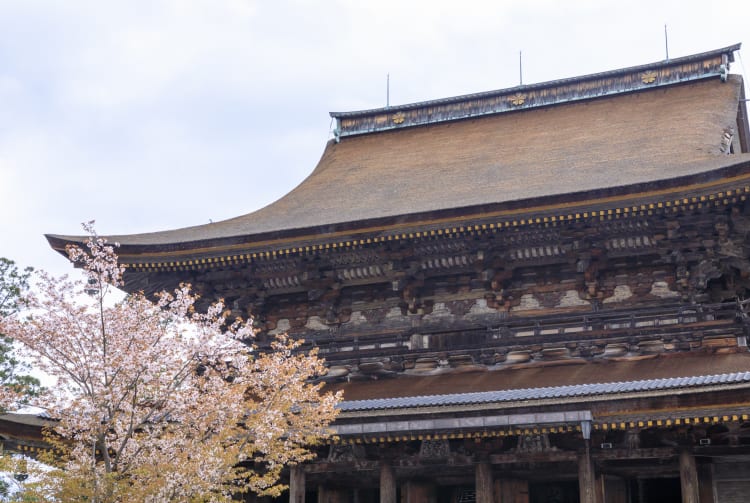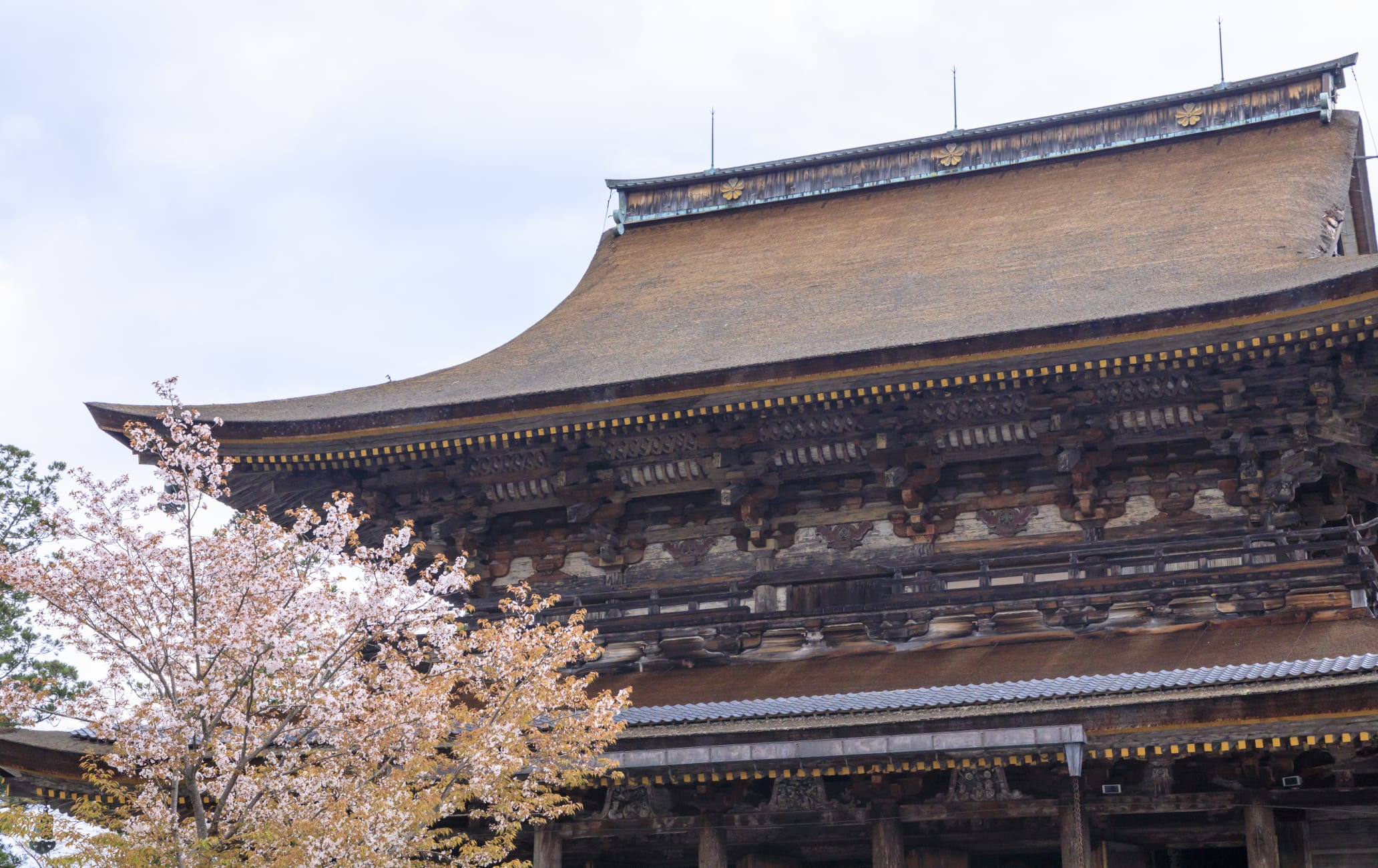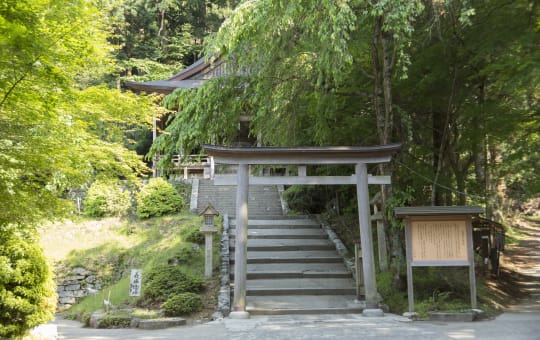Blended beliefs in mountain asceticism at this temple near Mt. Yoshino
Kinpusenji Temple is part of a sect that practices Shugendo mountain asceticism. This sect has roots both in Shinto and Buddhist beliefs. Tonan-in and Sakuramotobo temples are associated with this sect. This temple is one of the most important ones within Shugendo.
How to Get There
Kinpusenji Temple is a ten-minute walk from Yoshinoyama Station, the upper station of the Yoshino Ropeway.
The three statues of Zao Gongen
Kinpusenji temple houses some important relics of Shugendo. Three blue-skinned statues of Zao Gongen stand seven meters tall. They represent the past, present, and future salvation of people's lifetimes. These 1,300-year-old statues are open for viewing at certain times of the year.
The main building
The temple's main building, the Zaodo hall, is the second largest wooden structure in Japan, after Todaiji's Daibutsuden, or Great Buddha Hall.

Surrounded by World Heritage sites
This temple is an important stop on various pilgrimage routes. Kinpusenji Temple is the starting point of a pilgrimage to Mt. Omine. It is also a stop on various other pilgrimages. The entire area containing Kinpusenji Temple and Kinpu-jinja Shrine is a UNESCO World Heritage site as part of the Sacred Sites and Pilgrimage Routes in the Kii Mountain Range .
Train your physical and mental endurance
Kinpusenji Temple offers training events from May through October. These stress physical and mental endurance of the elements, such as hanging off cliffs or sitting under waterfalls. Shugendo teaches that through these activities we can approach enlightenment.
The Rengekai Toad Festival
The Rengekai Toad Festival is held on July 7 every year. It commemorates a local legend of a man being changed into a toad because he didn't take his religious practices seriously. This legend has a happy ending, as a priest later returned him to his human form. Toad and frog statues can be found around the town in memory of this story.

























































